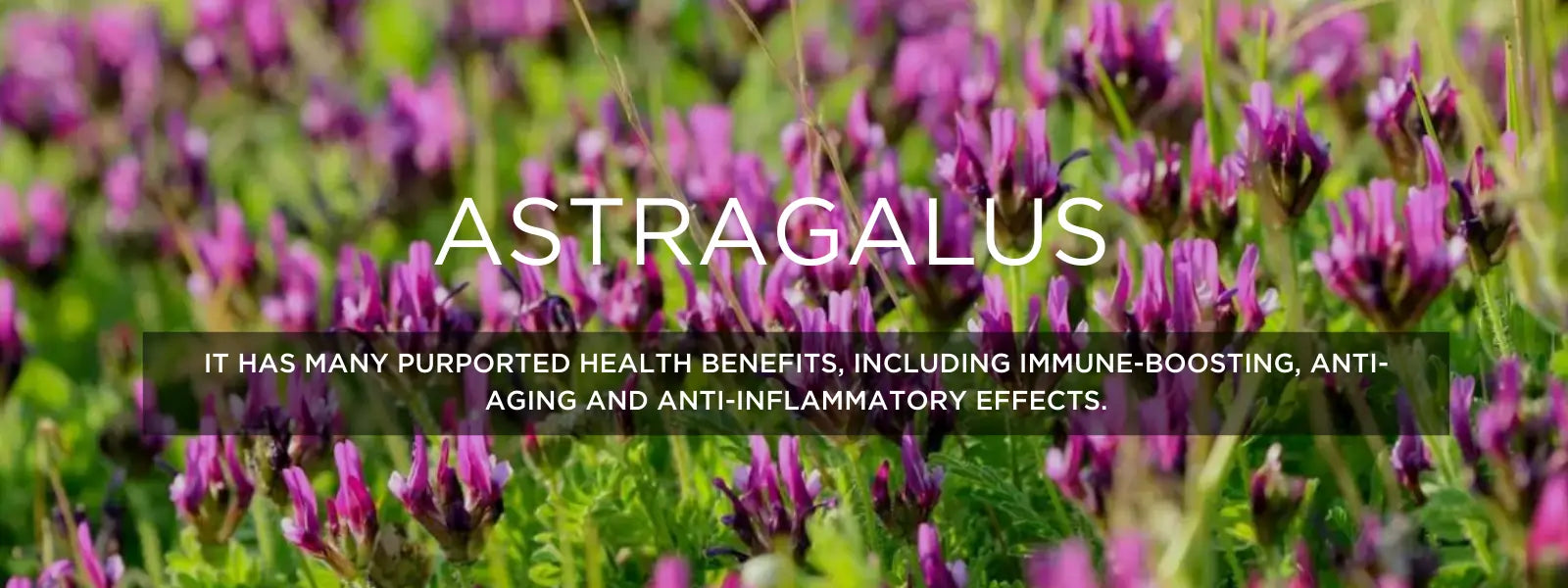Astragalus is considered an adaptogen. A group of organic compounds known as adaptogens is thought to increase the body's tolerance to emotional, environmental, and physical stimuli. Additionally, astragalus compounds appear to boost the immune system and lessen edoema.
Table of Contents
Plant Description
Astragalus is a perennial plant that grows from 16 to 36 inches tall and is indigenous to Mongolia, Korea, and the northern and eastern regions of China. Its leaves have 12 to 18 pairs of leaflets and hairy stems. The plant's root, which has medicinal properties, is typically taken from 4-year-old plants.
Parts Used
One can utilise the dried root medicinally.
Health Benefits:
Adaptogen:
Defends the body against illness and stress.
Colds and the flu:
Astragalus is a herb that is used in TCM to treat or prevent colds, despite the fact that, according to TCM theory, it sometimes makes colds worse.
Diabetes:
It seems that astragalus lowers blood sugar. To ascertain whether it can aid in the treatment of diabetes, more research is required.
Anemia:
According to a preliminary study, astragalus may raise blood counts in those with aplastic anaemia.
Cardiac Disease:
Astragalus may work as an antioxidant and aid in the treatment of heart disease, according to numerous research. Astragalus may help decrease cholesterol levels, according to several studies.
Kidney illness:
According to preliminary study, astragalus can both prevent and treat renal disease.
Cancer:
According to preliminary research, astragalus has anti-tumor properties, particularly against leukaemia and melanoma.
Chemotherapy-related fatigue or a lack of appetite:
Astragalus can help minimise chemotherapy adverse effects, according to certain research.
Hepatitis:
A mixture of herbs containing astragalus has been used in a few studies to cure hepatitis.
Seasonal allergies:
According to one study, astragalus may help persons with hayfever or allergic rhinitis feel better.
Accessible Forms:
Various types of astragalus root may be on the market:
- Tincture (liquid alcohol extract)
- Capsules and tablets, standardized and non-standardized
- Injectable forms for use in hospital or clinical settings in Asian countries
- Topically for the skin
Dosage:
The dosage is determined by age, weight, and the ailment being treated. Determine the safest and most beneficial dosage for you in consultation with your doctor. Higher doses may cause the immune system to be suppressed. Use an astragalus supplement that has been standardised for the best benefits. The dosage will vary depending on a number of variables, including whether astragalus is being used primarily as an adaptogen or for other purposes. To find the best dose plan for their requirements, patients should see a qualified practitioner.
Precausions/Side Effects:
Astragalus is typically safe to use when taken at the appropriate doses and has no significant adverse effects. But it does interact with other drugs and plants. Possible interactions are discussed below.
Because Astagalus may stimulate the immune system, those with autoimmune diseases should first speak with their doctor before taking it.
Insufficient information is available regarding the usage of Astragalus membranaceus during pregnancy and breast-feeding. Avoid use to be on the safe side.
Possible Interactions:
You shouldn't use astragalus if you take any of the following drugs without first consulting your doctor:
Immune system-suppressing medications:
Astragalus may interact with these medications. Avoid taking astragalus if you have an autoimmune condition like lupus or rheumatoid arthritis, or if you take corticosteroids or the drug cyclophosphamide, which is used to lessen the risk of rejection in transplant recipients.
Lithium:
Astragalus may make it more difficult for the body to eliminate lithium, which could result in the drug's levels rising to potentially lethal levels.











Leave a comment